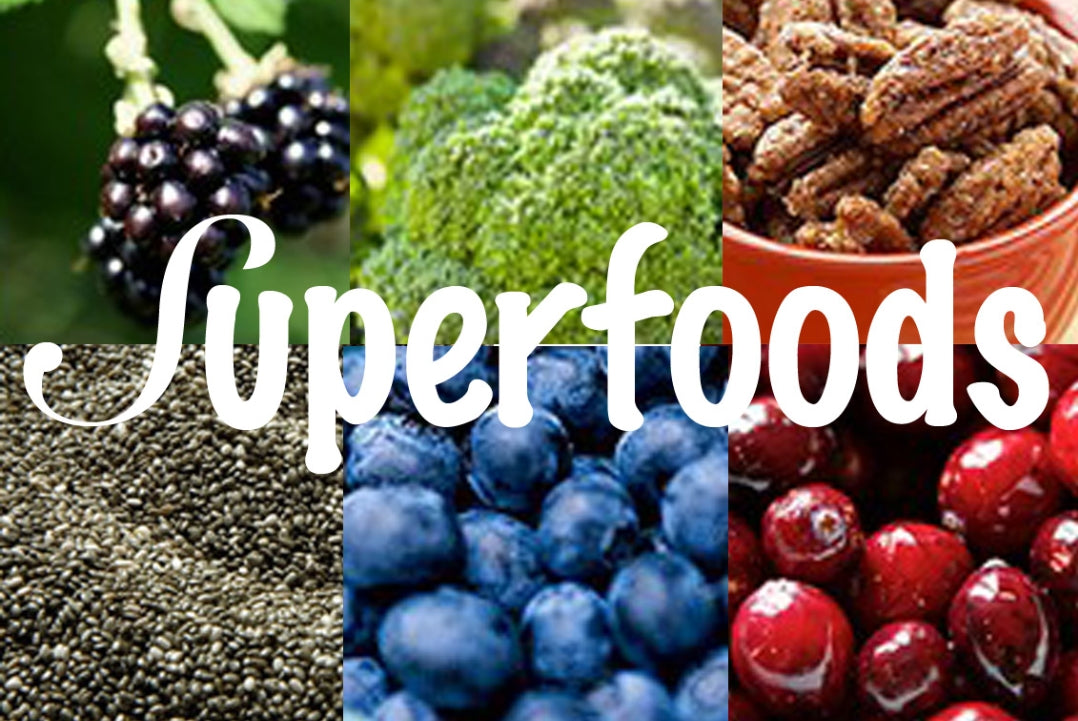
Oct 04 , 2021
My friend was telling me how "superfoods" will cure cancer and nearly all other ailments. She came over to my house with a box full of "superfoods" which included cranberry juice, pomegranite juice, lots of different fresh berries and some packets of things I had never heard of, let alone able to pronounce.
For many years now we have seen the trend in eating superfoods. Super fruits, super vegetables, super supplements etc.. .. If it's labelled or advertised as a Super food then we feel it's good for us. Specially if we have conditions such as cancer or some auto immune condition that drains us of energy.
What does it mean? Is it truly a super food capable of miracles or just a fad. Actually, it's a very clever marketing tool many companies use to increase sale of new products.
Theoretically, a super food is a food that is packed with nutrients including anti oxidants but eating buckets full of one thing will not cure cancer nor miraculously turn back the age clock.
It simply means that a particular food which is normally plant based(oily fish and some meat products too) has a high content of a certain vitamin or combination of nutrients which are either anti oxidants in nature or very nutritious for those lacking in vitamins or minerals. Normally, if you do feel a difference after eating a superfood for a while, it's probably because you were lacking in a particular component that the superfood has now replenished. Such as vitamin B complexes, iron, vitamin C and minerals.
Here are some nutritionally dense foods* that regular eating would be beneficial to us:
Kale- one of the most nutrient dense vegetables you can eat, with large amounts of vitamins, minerals and cancer-fighting compounds.
Sardines-They contain a little bit of almost every nutrient that the body needs and are pretty close to being perfect from a nutritional standpoint. Specially if you eat the whole sardine with guts and brain included!
Vitamins and minerals they contain per 100g :
Vitamin B12: 149% RDASelenium: 75% RDAVitamin D: 68% RDAPhosphorus: 49% RDACalcium: 28% RDANiacin: 26% RDAIron: 16% RDARiboflavin: 13% RDAPotassium: 11% RDAMagnesium: 10% RDAVitamin E: 10% RDA
Eggs- loaded with choline, a brain nutrient that about 90% of people aren’t getting enough of. Also, the yolk has been unfairly demonized as it has almost all the nutrients we need, and it has healthy fats and proteins too.
Nutrients in 1 single egg :
Selenium: 23% RDARiboflavin: 14% RDAVitamin B12: 11% RDAPhosphorus: 10% RDAPantothenic Acid: 7% RDAFolate: 6% RDAIron: 5% RDAVitamin A: 5% RDAVitamin B5: 5% RDAZinc: 4% RDAVitamin B6: 4% RDAVitamin D: 4% RDACalcium: 3% RDACopper: 3% RDA
Garlic - is high in vitamins C, B1 and B6, Calcium, Potassium, Copper, Manganese and Selenium. Garlic's active ingredient is Allicin which has been shown to lower blood pressure and total and LDL cholesterol, while raising HDL. This will lead to a reduced risk of heart disease in the long run.
Nutritional values for 100g of Garlic:
Cholesterol 0%
Sodium 0%
Potassium 11%
Total Carbohydrate 11%
Dietary fiber 8%
Sugar 1 g
Protein 12%
Vitamin A0%
Vitamin C52%
Calcium18%Iron9%
Vitamin D0%
Vitamin B-660%
Vitamin B-120%
Magnesium6%
Next time you reach out to buy a "superfood", remember that for it's affect to be beneficial you need to eat it regularly and over a long period of time.
*food.gov.uk 2013 & 2014 Nutrient Analysis of Fruit and Vegetables. New National Diet


